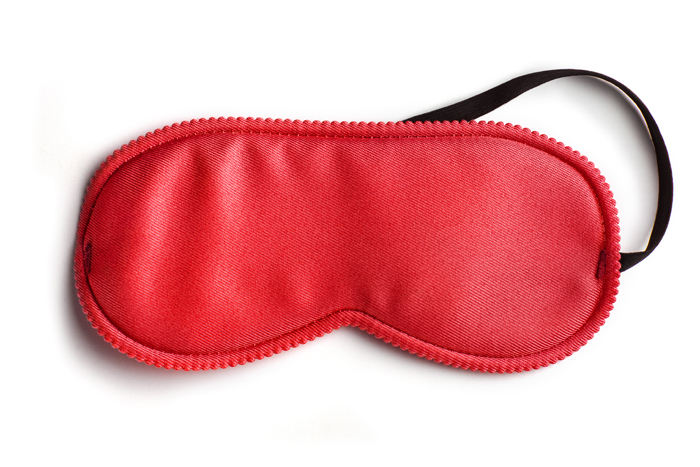Sleep Medications & Insomnia Treatments in Koramangala, Bangalore
Sleep medicine is a medical specialty dealing with the diagnosis, management, and treatment of sleep disorders, disturbances, and other sleep-related concerns. Sleep medicine and sleep management physicians work in different settings, stretching from primary care practices to dedicated sleep-disorder centers.
Sleep disorders are pretty common and may have serious long-term repercussions, such as an increased risk of heart stroke, cardiac issues, type 2 diabetes, and even lead to obesity if left undiagnosed and untreated.

Specialized Training in Sleep Medicine
There are various disciplines that are integrated with sleep medicine, namely, internal medicine (particularly pulmonology and cardiology), psychiatry, psychology, neurology, neurosurgery, clinical neurophysiology, otorhinolaryngology, pediatrics, sleep technology, and dentistry. Sleep medicine specialists are also known as somnologists.
Common Sleep Disorders
There are various sleeping disorders and sleep-related problems including, but not limited to:
- Insomnia: A sleep disorder where you have trouble falling or staying asleep.
- Hypersomnia: A sleep disorder where you feel excessive sleepiness during the day.
- Bruxism: A disorder to clench, grind, or gnash your teeth while sleeping.
- Narcolepsy: Chronic sleep disorder of daytime drowsiness or sudden sleep attacks.
- Sleep apnea: A severe sleep disorder where breathing repeatedly stops and starts while sleeping.
- Parasomnia: A sleep disorder causing abnormal behavior while asleep.
- Circadian sleep disorders: A sleep disorder causing difficulty falling asleep, waking up during the sleep cycle, or waking up too early and being unable to fall back to sleep.
- Sleep-related rhythmic movement disorder (SRMD): A sleep condition involving repetitive rhythmic movements when a person is drowsy or asleep.
- Restless legs syndrome (RLS): A condition characterized by a nearly irresistible urge to move the legs, usually when in an uncontrollable sensation.
- Sleep behavior disorder: A parasomnia disorder where the person acts out the dream.
- Snoring: A disorder where harsh or hoarse sound occurs from nose or mouth when breathing, partially obstructed while sleeping.
- Nightmare disorder: It is also known as dream anxiety disorder, where the person gets frequent nightmares.
- Somnambulism (sleepwalking): A pervasive sleep disorder that mainly occurs in children. Sleepwalkers usually get up and walk around while still asleep.
What Causes Sleep Disorders?
Several underlying conditions, diseases, and disorders cause sleep disorders. Mostly, a sleep disorder is caused due to some other underlying health issue.
A few principal reasons behind the development of any sleep disorder are frequent urination at night, causing sleep disturbance; stress, anxiety, or depressed state of mind; chronic pain; and any respiratory or asthma issue making it difficult to breathe at night, causing sleep disturbance.
Diagnosis of Sleep Disorders
A sleep specialist begins with a complete review of your medical history where the sleep pattern is in focus. A comprehensive sleep pattern examination is conducted, where your sleep behavior, breathing issues, and oxygen level are monitored while you are asleep.
Few diagnostic methods used in sleep medicine are:
- Epworth sleepiness scale (ESS)
- Actigraph
- Polysomnography (PSG)
- Multiple sleep latency test (MSLT)
- Home sleep apnea test (HSAT)
- Imaging studies
Treatment of Sleep Disorders/Treatments Involved in Sleep Medicine
Based upon the diagnosis, a sleep specialist suggests different modes of treatment. A few sleep disorder treatments are as follows:
- Continuous positive airway pressure (CPAP)
- Co appliances
- Medications
- Pharmacotherapy
- Chronotherapy
- Change in sleep hygiene
- Surgerygnitive-behavioral therapy for insomnia (CBT-I)
- Oral
There are different surgical approaches that the sleep specialist can recommend as per the diagnosis. They are:
- Hypoglossal nerve stimulator
- Septoplasty
- Uvulopalatopharyngoplasty (UPPP)
- Turbinate reduction
- Radiofrequency volumetric tissue reduction (RFVTR)
- Hyoid suspension
- Bariatric surgery (Weight loss surgery)
When Should You Contact a Sleep Specialist?
If you are having trouble sleeping for a long duration, seeking help from a sleep specialist can be beneficial. Other conditions which should be an indication to visit a sleep specialist are:
- A decline in the quality or quantity of sleep
- Feeling tired even after a good night’s sleep
- Choking, snoring, and gasping while asleep
- Unwanted sleep movements like sleep talking, sleepwalking, sleep paralysis, etc.
- Excessive sleepiness while doing daily routine works
- Sore throat in mornings
- Taking too many naps
You must always look for these symptoms. If they are persistent, contact a sleep specialist right away. Let your doctor know your medical history and if you are currently on any medication.
Request an appointment at Apollo Spectra Hospitals
Call 1860 500 2244 to book an appointment.
What Are The Risks Associated with Sleep Medicine?
There are certain potential side effects which you may experience when on Sleep Medicine:
- Burning or tingling sensation
- Dizziness or lightheadedness
- Constipation and stomach pain
- Mental impairment
- Diarrhea
- Nausea or Drowsiness
- Change in appetite
- Drowsiness
- Dry mouth or throat
- Gas and Heartburn
- Headache
- Difficulty paying attention
- Impaired balance
- Physical weakness
This entirely depends on each patient's condition. For example, patients with sleep apnea are usually referred to a lung specialist also. However, all sleep doctors can treat sleep apnea.
Most of the sleep studies take place in 6 to 8 hours on average. However, it can vary from person to person.
If you feel tired throughout the day or have a persistent problem while sleeping at night, contact a doctor about your sleep to avoid any future issues.
Most people are unaware of their sleeping disorders. It is difficult for a physician to check or measure a patient’s sleep at the initial stage to diagnose whether or not it is a severe sleep disorder.
Symptoms
Our Top Specialities
NOTICE BOARD
CONTACT US
CONTACT US
 Book Appointment
Book Appointment


.svg)
.svg)
.svg)
.svg)








